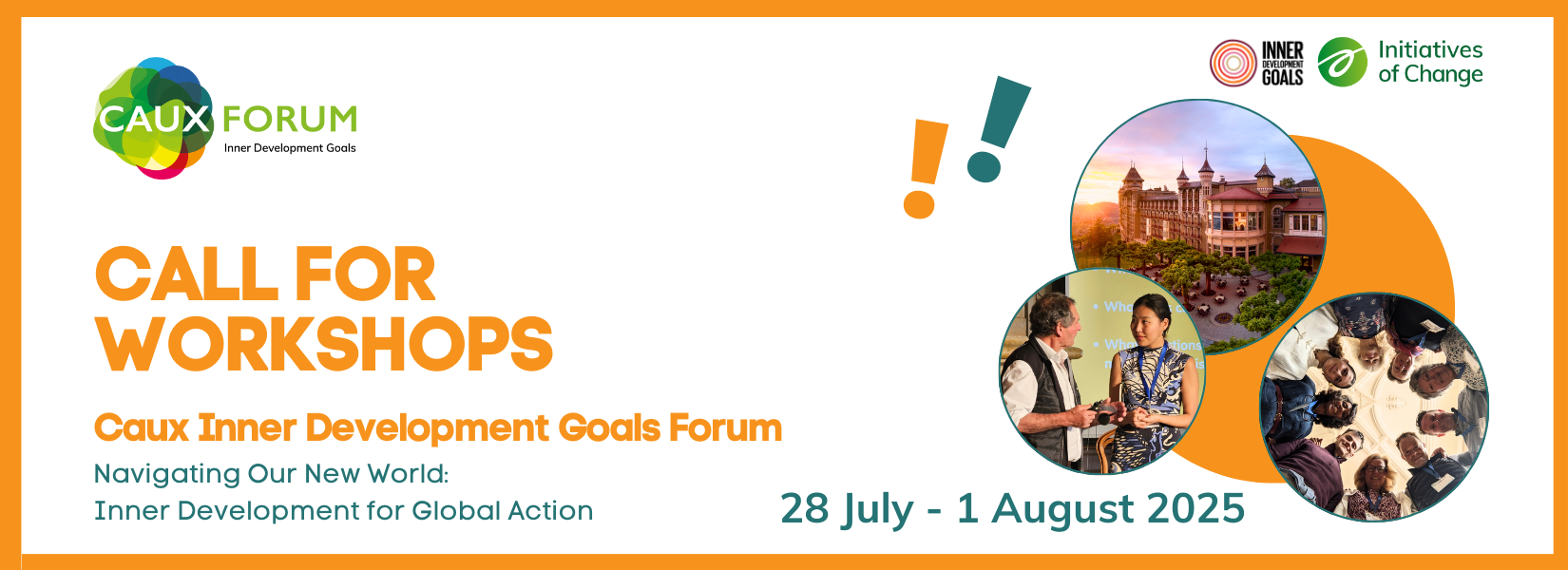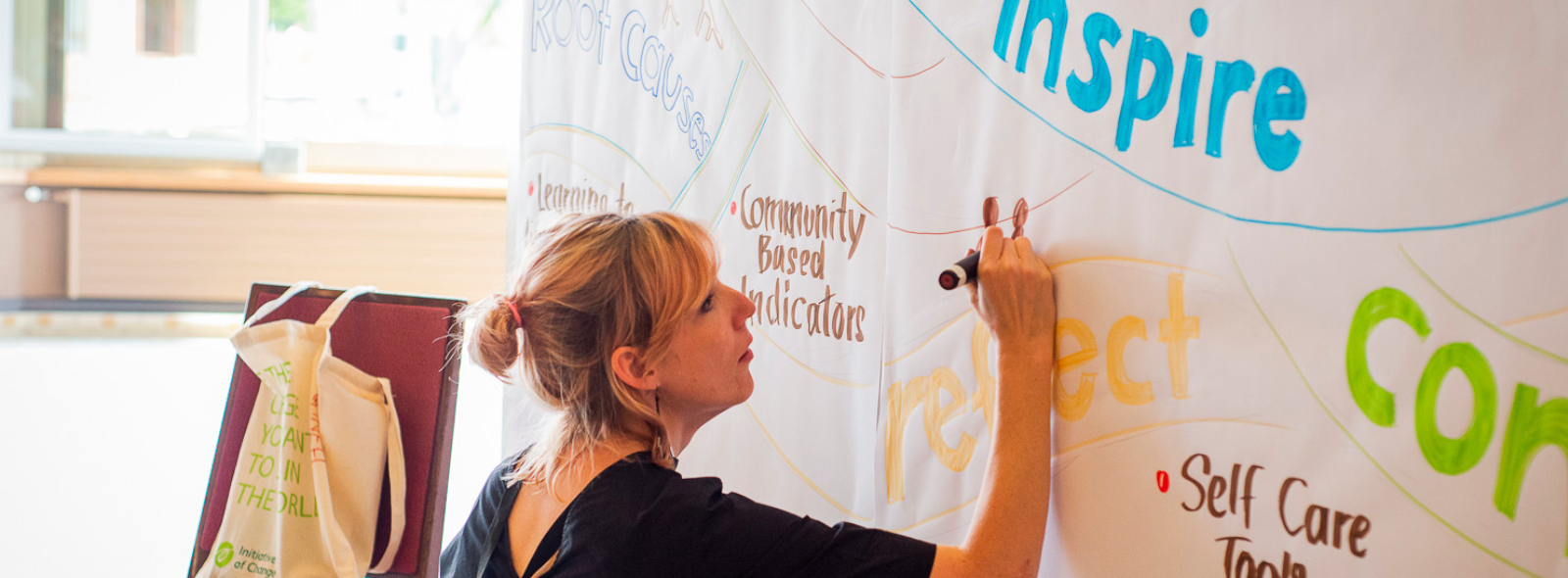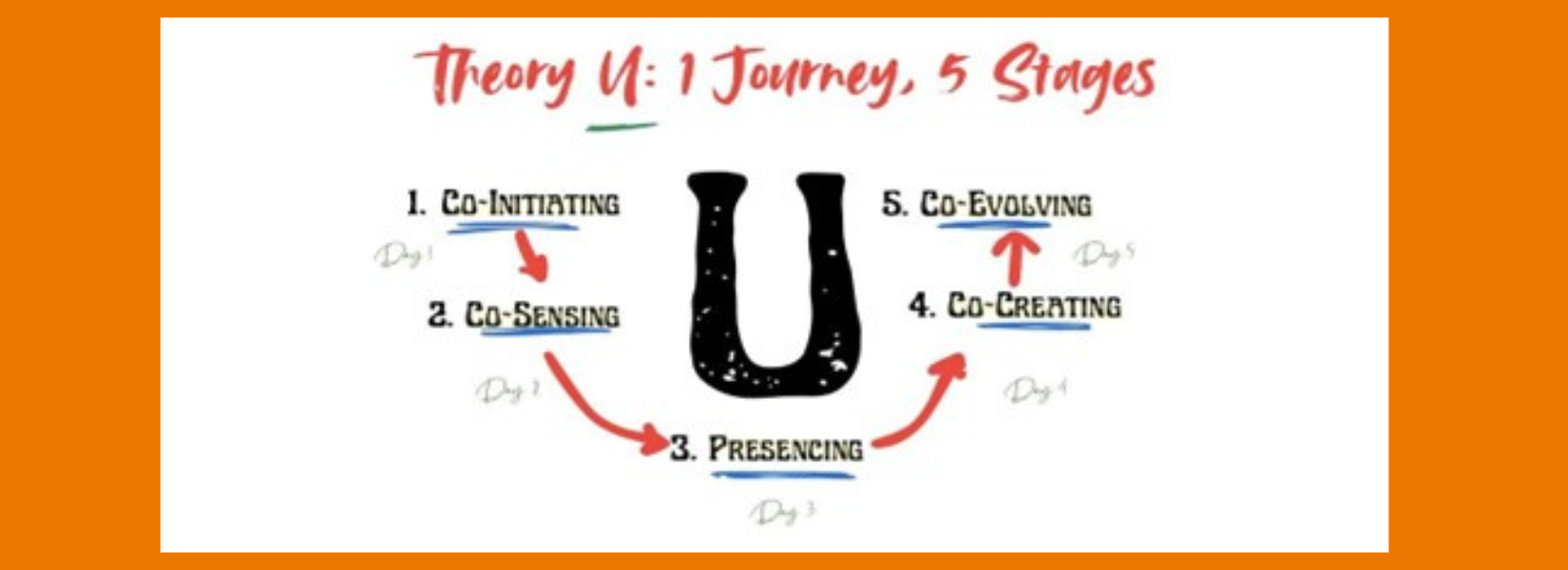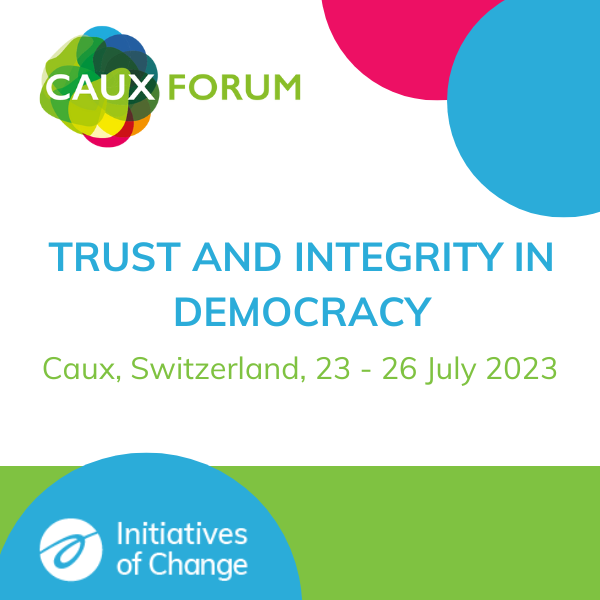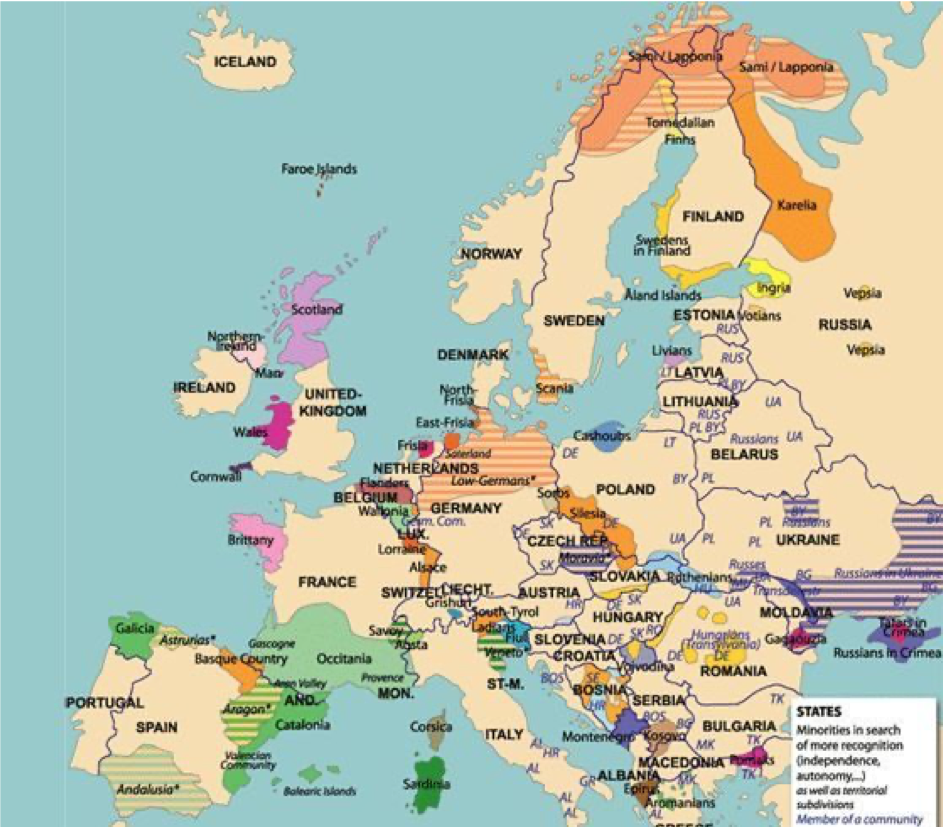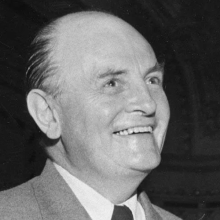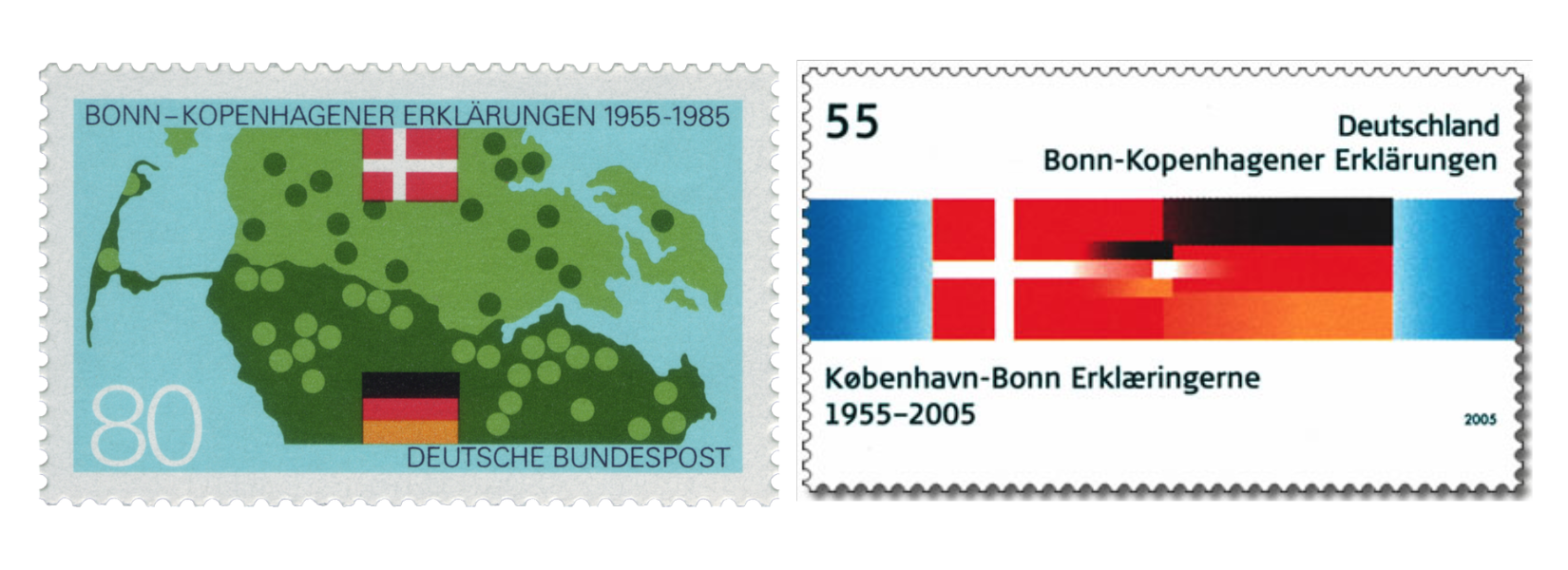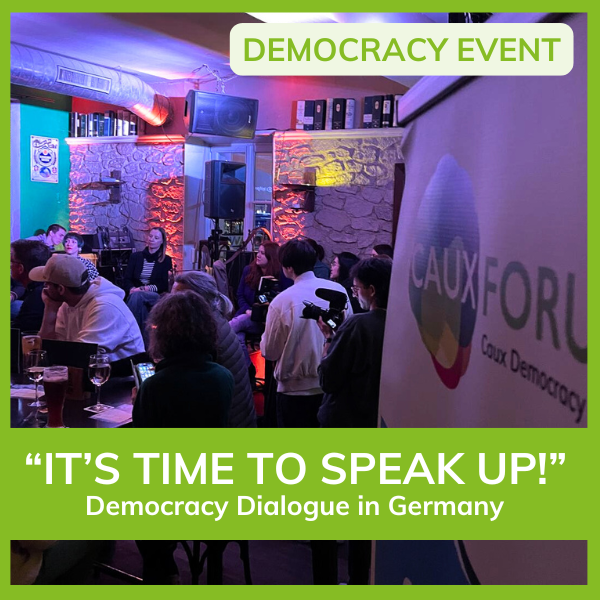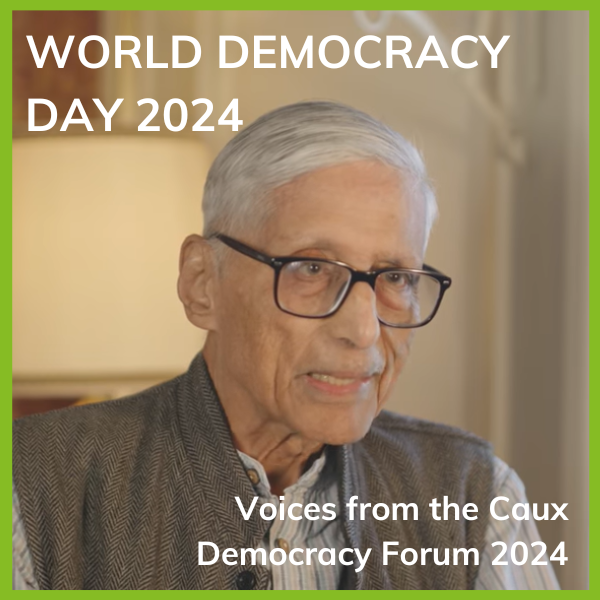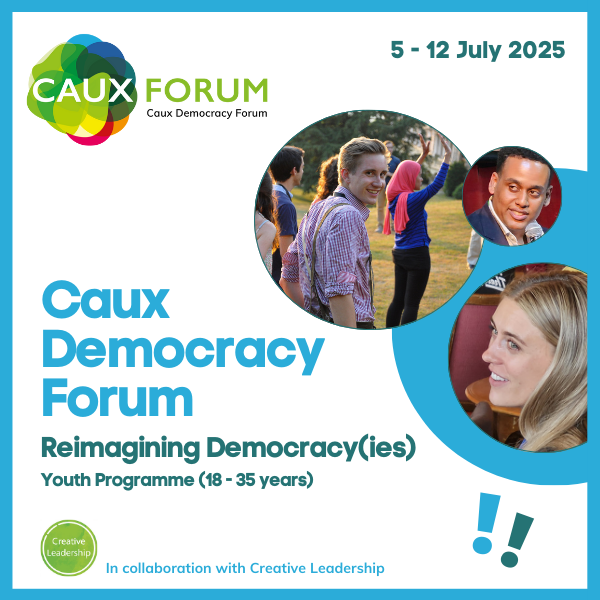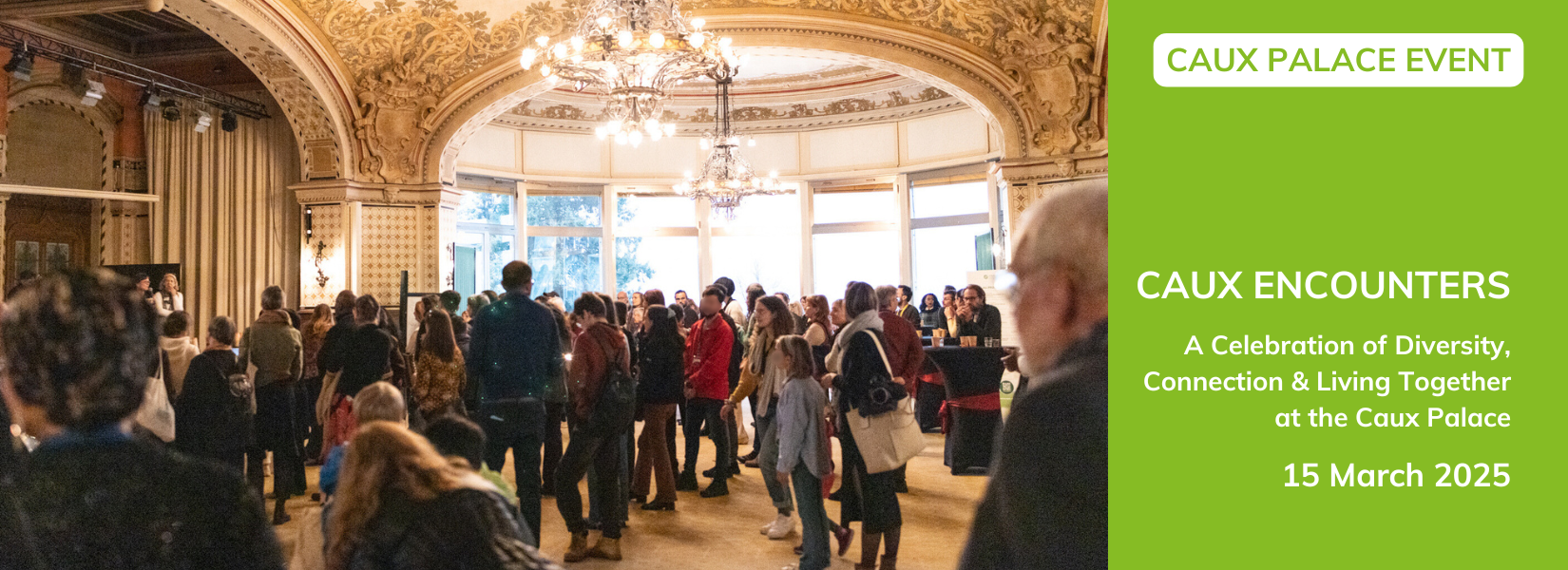Caux Inner Development Goals Forum 2025: Call for Workshops
Application Deadline: 15 May 2025
31/03/2025
Navigating our New World: Inner Development for Global Action
The 2025 edition of the Caux Inner Development Goals Forum (Caux IDG) focuses on integrating inner development with global impact, ensuring that the mind, heart, and will are open and engaged in harmony to foster both inner and outer peace.
We invite you to create transformative workshops during the Caux IDG Forum, where our objective is to embark on a deep, experiential journey guided by the Theory U framework.
We are seeking interactive, engaging, and experiential workshops for:
- DAY 3: Presencing & Inspiration – Cultivating self-awareness and aligning purpose with action
- DAY 4: Co-Creating - Prototyping & Designing Solutions
each of which follows a distinct stage of the Theory U journey.
Application deadline: 15 May 2025
Understanding Theory U & its role in the Caux IDG Forum
What is Theory U?
Theory U, developed by Otto Scharmer at MIT’s Presencing Institute, is a framework for leading profound systemic change by shifting from habitual, reactive thinking to a more conscious, connected, and co-creative approach.
It describes a U-shaped journey that helps individuals and groups move from seeing problems through old lenses to co-creating innovative, sustainable solutions.
The five key stages of Theory U mirror an inner and outer transformation process, guiding us to:
- Observe deeply without judgment (Co-Sensing)
- Connect with our inner knowing and emerging future (Presencing)
- Prototype and co-create innovative solutions (Co-Creating & Co-Evolving)
Why is Theory U Important for the Caux IDG Forum 2025?
The Inner Development Goals (IDGs) and the philosophy of Caux Initiatives of Change emphasize the importance of cultivating inner capacities—such as self-awareness, compassion, and collaboration—as the foundation for meaningful global change. However, true transformation goes beyond intellectual learning; it requires deep experiential engagement.
Theory U, as a transformational development framework, guides this shift from inner awareness to outward action. It provides a structured process for participants to convene, observe, reflect, crystallize insights, and prototype solutions for both personal and global challenges.
Workshop Guidelines
Day 3: Presencing – Connecting to Inner Wisdom & Purpose
Intention:
- Creating stillness, self-reflection, and inner clarity to discuss pressing global challenges and to uncover new possibilities.
What we are looking for:
- Activities that encourage letting go of limiting beliefs and creating space for new insights.
- Deep dialogue circles where participants can explore emerging questions, feelings, and intuitive knowledge.
Day 4: Co-Creating – Prototyping & Designing Solutions
Intention:
- Moving from insight to action—designing tangible solutions through collaboration and experimentation.
What we are looking for:
- Workshops that encourage co-creation and rapid prototyping of ideas that address global challenges or systems change.
- Sessions that introduce solution-focused dialogues or support system-focused dialogue.
It’s important to highlight that, on Day 4, participants will have the option to attend the Pro-Action Café, where they can self-organize around key topics emerging from Day 1 and begin designing real-world experiments, or engage in workshop sessions.
The choice of which session to participate in will be at the discretion of the participants. Our goal is to make the forum as inclusive and experiential as possible.
Workshop Format & Submission Guidelines
- Workshop Duration: 90 minutes
- Formats Encouraged: Interactive, participatory, and experiential (NO long lectures!)
How to apply?
- Fill out the application form by 15 May 2025.
- Please ensure all documents are complete before submission.
If you have questions or need guidance on shaping your workshop, feel free to reach out by EMAIL.
Thank you for being part of this transformative journey. Together, we are building the inner capacities needed for global change.
We look forward to your innovative workshop proposals!
APPLY NOW
